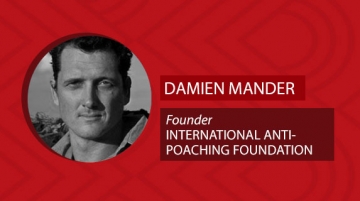
China’s surprise announcement that it will phase out the trade and manufacturing of ivory came as a rare piece of good news for Africa’s rapidly shrinking elephant population. While most major international wildlife groups welcomed Beijing’s new policy direction, others said it’s too early to rejoice until a specific timeline is announced and what, if any, exceptions may be included in a new ivory law.
The U.S.-based International Fund for Animal Welfare (IFAW) is among the major conservation groups that are encouraged by Beijing’s apparent shift on the ivory issue. IFAW campaigner Peter LaFontaine joins Eric & Cobus to discuss the emerging Chinese ivory policy and why elephant campaigners may next turn their attention to the USA, the world’s second-largest market for illicit ivory.

Peter LaFontaine is a Campaigns Officer with the International Fund for Animal Welfare’s Washington, DC office.
Peter helps to lead IFAW’s U.S. federal and state efforts to safeguard elephants and other species threatened by illegal wildlife trafficking, and advocates for stronger measures to address climate change. Prior to joining IFAW, Peter worked for the National Wildlife Federation on climate change, fossil fuel, and natural resource adaptation issues, and was a staff naturalist for the Cottonwood Gulch Foundation in New Mexico.
Peter holds a B.A. from Washington University in St. Louis and is a recent graduate of the Emerging Wildlife Conservation Leaders program.
Peter was recently featured on an episode of the PBS Newshour podcast “Shortwave” hosted by PJ Tobia where he discussed in detail how the ivory trade in both China and the U.S. Listen to the show here:
Other sources referenced in this episode:
- Washington Post: Overwhelmed U.S. port inspectors unable to keep up with illegal wildlife trade
- PBS Newshour podcast “Shortwave”: Why U.S. rules aren’t stopping illegal ivory trade at home
- The Guardian: China agrees to phase out its ivory industry to combat elephant poaching




